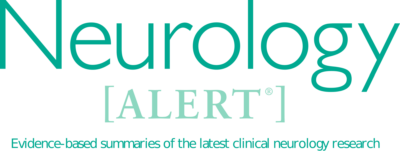
Neurology Alert – January 1, 2007
January 1, 2007
View Issues
-
Antipsychotics in Alzheimer's Patients: The CATIE-AD Study
Because of adverse effects, special care should be used when prescribing the atypical antipsychotic drugs for patients with dementia. -
Sentinel Headaches: Do they Predict Rebleeding after Subarachnoid Hemorrhage?
Patients with sentinel headaches occurring in the 4-week period prior to a subarachnoid hemorrhage have a 10-fold increase in early rebleeding. These patients may benefit from ultra-early treatment including aneurysm obliteration. -
Deep-Brain Stimulation for Dystonia: Stimulation is Superior to Simulation
Deep-brain stimulation (DBS) of the globus pallidus interna (GPi) is an FDA-approved treatment for certain types of dystonia, but previous studies have been limited by a small sample size and/or a lack of adequate controls. -
Neurological Consequences of Starvation
Prolonged starvation causes Wernicke's encephalopathy in spite of oral thiamine supplementation, and permanent neurological deficits may result. -
Rolandic Epilepsy Surgery — Weighing the Risks
Surgery for epilepsy in and around sensory-motor cortex can be effective in controlling seizures, but mild post-operative neurological deficits are not uncommon in patients operated on after age 25. -
What is the Mechanism of Transient Global Amnesia?
Patients show reversible MRI signal abnormalities in the CA-1 sector of the hippocampal cornu ammonis early in the course of TGA. They are not correlated with any specific clinical or memory features of the episode. -
Pharmacology Watch
Patients with coronary artery disease who have received intra-coronary, drug-eluding stents (DES) may benefit from longer courses of clopidogrel than is currently standard. -
Clinical Briefs in Primary Care Supplement
